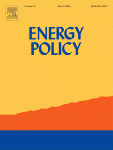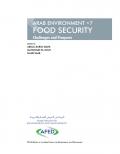
This paper addresses the challenge of Germany׳s energy transition (Energiewende) as the centrepiece of the country׳s green industrial policy. In addition to contributing to global climate change objectives, the Energiewende is intended to create a leading position for German industry in renewable energy technologies, boost innovative capabilities and create employment opportunities in future growth markets at the least possible cost. The success in reaching these aims, and indeed the future of the entire concept, is hotly debated.
This paper was prepared at the request of the Republic of Nauru, Chair of the Alliance of Small Island States. The global low-carbon transformation, needed to tackle the climate crisis is within reach but will require immediate decisive political action from leaders around the world. This paper identified the imperatives for transformative action to a low-carbon economy, technological opportunities, as well as necessary policy, financial and economic considerations.
In recent years there has been increasing support for establishing successful models of REDD+ and low emissions development (LED) efforts at a jurisdictional scale. Jurisdictional efforts were designed to overcome the shortcomings of project-based approaches by working across land-use types and with multiple stakeholders to create models for national implementation. This study analyzes some of the most advanced REDD+/LED initiatives worldwide - including a critical look at the success and challenges to date - to understand what is needed to succeed going forward. Eight diverse jurisdictions were studied: Acre, Brazil; Berau, Indonesia; Ghana’s cocoa ecoregion; Mai Ndombe, Democratic Republic of the Congo (DRC); San Martín, Peru; São Félix do Xingu, Brazil; the Terai Arc, Nepal; and the Yucatan Peninsula, Mexico.

This paper presents a framework for a green economy transition in tourism destinations. While the literature has suggested many models to guide sustainable tourism, very few studies have investigated the green economy in a tourism context. The main distinguishing factor between the green economy and sustainable development may be described as the acknowledgement of climate change as an existential threat to society and the aim to avoid policy, management and governance fragmentation (which has been common for environmental issues) by addressing greenhouse gas emissions, resource efficiency and social inclusiveness holistically at the economic level. This study frames the green economy concept from a tourism perspective and presents a model for translating the green economy concept into a tourism stakeholder engagement process. The model was tested in the case study of Bali, Indonesia, involving research methods such as visioning group techniques with tourism stakeholders, tourism economy and employment forecasting, resource efficiency estimates as well as resident and visitor surveys.
